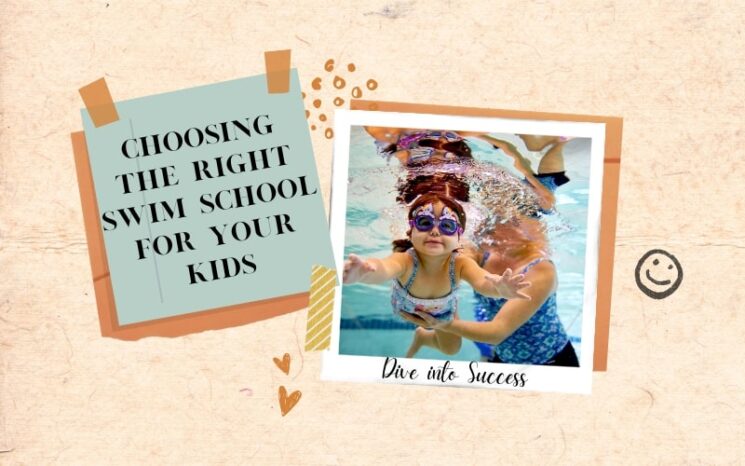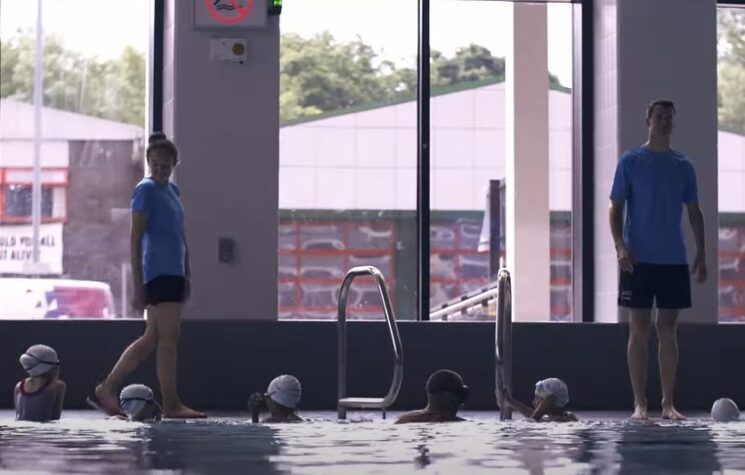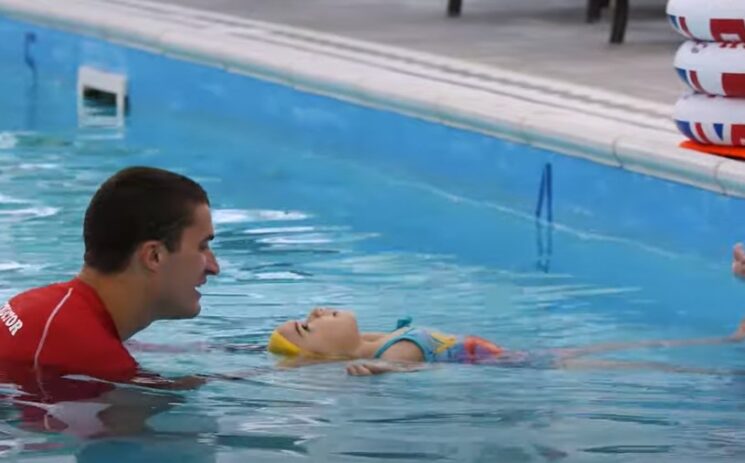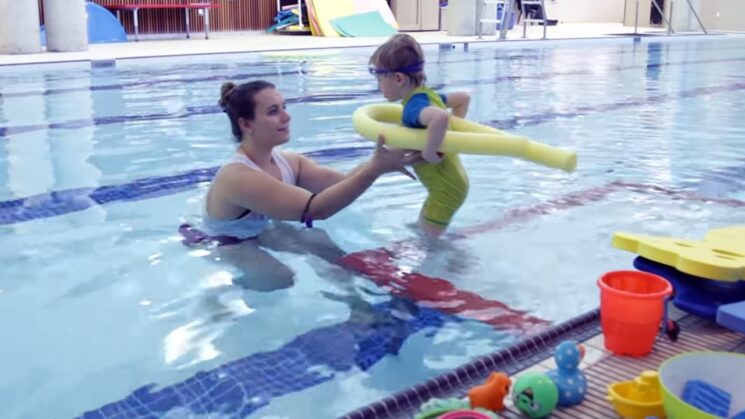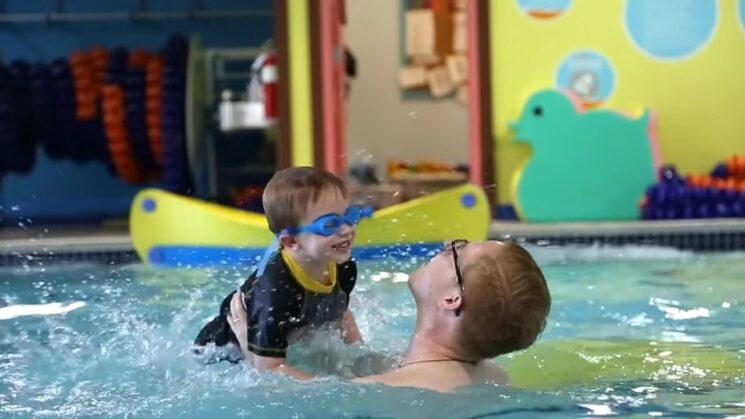When it comes to ensuring your children’s safety and providing them with valuable life skills, enrolling them in a reputable swim school is essential. However, with numerous options available, it can be challenging to choose the right one for your kids.
In this article, we will guide you through the process of selecting the perfect swim school that meets your child’s needs. From experienced instructors to comprehensive programs, we’ll cover the key factors to consider. Let’s dive in!
Table of Contents
Qualified and Experienced Instructors
One of the most crucial aspects of a reputable swim school is the presence of qualified and experienced instructors. Look for schools that employ certified swim instructors who have extensive experience working with children. These instructors should possess the necessary qualifications and training to teach swimming skills effectively and ensure the safety of their students.
Comprehensive Curriculum
A well-rounded swim school should offer a comprehensive curriculum that caters to children of different ages and skill levels. Look for programs that focus not only on teaching swimming techniques but also on water safety, survival skills, and building confidence in the water. A curriculum that emphasizes both skill development and fun will help your children enjoy the learning process and make progress at their own pace.
Small Class Sizes and Personalized Attention
To maximize learning and ensure individual attention, opt for swim schools that maintain small class sizes. Smaller classes allow instructors to focus on each child’s progress, address their specific needs, and provide personalized feedback. This personalized approach promotes a supportive learning environment and helps children build confidence in their swimming abilities.
Safety Measures and Facilities
When choosing a swim school, prioritize safety. Ensure that the school follows strict safety protocols, including lifeguards or trained staff members on-site. The facility should have proper safety equipment, well-maintained swimming pools, and hygienic conditions. Additionally, inquire about the school’s emergency procedures and their approach to handling any potential incidents.
Positive Learning Environment
A positive learning environment plays a significant role in your child’s swimming journey. Look for a swim school that fosters a supportive and encouraging atmosphere. Positive reinforcement, praise, and constructive feedback help children feel motivated and confident in their abilities. A warm and friendly environment will make the learning experience enjoyable and help your children develop a lifelong love for swimming.
Reputation and Recommendations
Consider the reputation and recommendations of the swim school within the community. Seek feedback from other parents or conduct online research to learn about the experiences of previous students. Positive reviews and recommendations can provide valuable insights into the quality of instruction, curriculum, and overall satisfaction of parents and students.
Convenience and Accessibility
Evaluate the location and schedule of the swim school. Choose a school that is conveniently located and has suitable class timings that fit into your family’s routine. Factor in travel time, parking availability, and the overall convenience of attending lessons at the chosen swim school.
Trial Lessons or Orientation
Many swim schools offer trial lessons or orientation sessions for prospective students. Take advantage of these opportunities to observe the teaching methods, interact with instructors, and assess the overall atmosphere of the swim school. This firsthand experience can help you make an informed decision.
Communication and Parent Involvement
Consider the level of communication and parent involvement encouraged by the swim school. A reputable swim school will maintain open lines of communication with parents, providing regular updates on their child’s progress and addressing any concerns. Look for schools that involve parents in the learning process, offering opportunities to observe classes or participate in parent-child activities.
Cost and Value
While cost is a factor to consider, it should not be the sole determinant in choosing a swim school. Assess the value that the swim school offers in relation to the cost. Compare the pricing of different swim schools and evaluate the services and benefits they provide. Remember, investing in your child’s safety, skill development, and enjoyment in the water is priceless.
Conclusion
Choosing the right swim school for your kids is a decision that requires careful consideration. Qualified instructors, a comprehensive curriculum, small class sizes, safety measures, a positive learning environment, and convenient accessibility are all crucial factors to keep in mind. By researching and evaluating different swim schools based on these criteria, you can make an informed decision that best suits your child’s needs.
Remember, SwimRight Academy is a reputable swim school that meets these key criteria. They have a team of experienced instructors, a comprehensive curriculum, and a commitment to safety and quality education. By enrolling your kids in SwimRight Academy, you are giving them an opportunity to develop essential swimming skills, build confidence, and enjoy a lifetime of water-based activities.
Disclaimer: This article is for informational purposes only and does not substitute professional advice. Consult with SwimRight Academy or other qualified professionals for personalized guidance on choosing a swim school.
Frequently Asked Questions
How do I know if a swim school has qualified instructors?
Swim schools with qualified instructors usually mention their certifications and experience on their website or promotional materials. You can also inquire directly with the swim school about the qualifications of their instructors.
Can I visit the swim school before enrolling my child?
Many swim schools offer facility tours or orientation sessions for prospective parents and students. Contact the swim school to inquire about visiting options and get a firsthand experience of their environment.
What is the ideal class size for my child?
The ideal class size can vary depending on the swim school and the age and skill level of your child. However, smaller class sizes generally allow for more personalized attention and a better learning experience.
Is it necessary for the swim school to have lifeguards on duty?
While it may not be a requirement for all swim schools, having lifeguards or trained staff members present is an added safety measure. Inquire about the swim school’s safety protocols to ensure the well-being of your child.
Are there any additional costs involved apart from the swimming lessons?
Some swim schools may have additional costs such as registration fees, swim gear, or uniforms. It’s important to clarify all the associated costs before enrolling your child to avoid any surprises.

